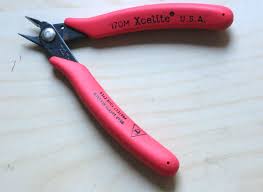James5v
Recycles dryer sheets
- Joined
- Oct 30, 2007
- Messages
- 88
I have been told that electronics bought at Walmart particularly TV's are built as cheaply as possible and do not reflect the quality of the brand name. I also understand that if they need repair one is unable to obtain parts.
One technician called about a brand name to his parts provider. When they looked in their computer it was identified as a product made specially for Walmart. They informed him they did not carry parts for this product but had parts for any of their brand name that were sold by any other store.
Can anyone verify this information?
One technician called about a brand name to his parts provider. When they looked in their computer it was identified as a product made specially for Walmart. They informed him they did not carry parts for this product but had parts for any of their brand name that were sold by any other store.
Can anyone verify this information?

